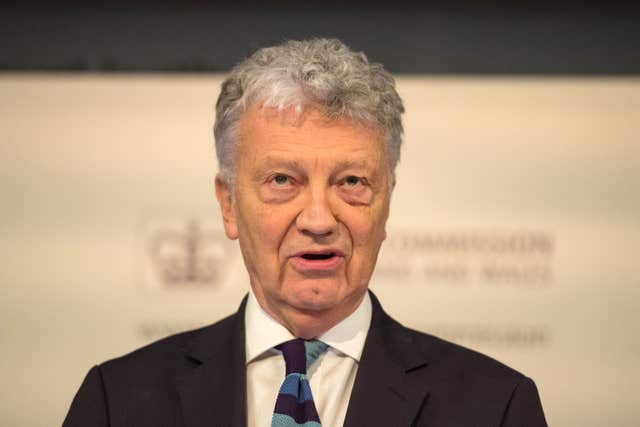The Government’s anti-terror programme is not doing enough to tackle “non-violent Islamist extremism”, a review has found.
The findings of the long-awaited assessment of the Prevent programme – which aims to stop people turning to terrorism – was published on Wednesday and recommended a series of reforms.
Led by former Charity Commission chairman William Shawcross after being ordered by former home secretary Priti Patel in 2019, the review found Prevent “is not doing enough to counter non-violent Islamist extremism” and “has a double standard when dealing with the Extreme Right-Wing and Islamism”.

In his review, Mr Shawcross said it was “clear” Prevent was “out of kilter with the rest of the counter-terrorism system, and the UK terrorism threat picture” and “must return to its overarching objective: to stop individuals from becoming terrorists or supporting terrorism”.
He found Prevent was “carrying the weight for mental health services” leading to referrals for vulnerable people who do “not necessarily pose a terrorism risk” which he branded a “serious misallocation of resources” which “risks diverting attention from the threat itself”.
Mr Shawcross said he was “disturbed by the prevalence of antisemitism” in the so-called “Channel” cases he observed, referring to people in the programme who are considered most at risk of becoming radicalised and turning to terrorism, and called for Prevent to “better understand and tackle antisemitism.”
He also raised “particular concern” about civil society organisations (CSOs) funded by the programme which have promoted extremist narratives, including statements that appear sympathetic to the Taliban”, adding: “As a core principle, the Government must cease to engage with or fund those aligned with extremism.”
Among the findings in the wide-ranging review, the report said: “Challenging extremist ideology should not be limited to proscribed organisations but should also cover domestic extremists operating below the terrorism threshold who can create an environment conducive to terrorism.”
It added: “Prevent takes an expansive approach to the extreme right-wing, capturing a variety of influences that, at times, has been so broad it has included mildly controversial or provocative forms of mainstream, right-wing leaning commentary that have no meaningful connection to terrorism or radicalisation.
“However, with Islamism, Prevent tends to take a much narrower approach centred around proscribed organisations, ignoring the contribution of non-violent Islamist narratives and networks to terrorism.
“Prevent must ensure a consistent and evidence-based approach to setting its threshold and criteria, and ensure it does not overlook key non-violent radicalising influences.”
The Government has accepted all 34 recommendations made in the 188-page report.
The Home Office said it would “overhaul” Prevent in the fight against radicalisation and that the Home Secretary had “committed to delivering wholesale and rapid change” across the programme.
Suella Braverman, who is expected to make a statement about the findings in the Commons later, said: “Prevent will now ensure it focuses on the key threat of Islamist terrorism.
“As part of this more proportionate approach, we will also remain vigilant on emerging threats, including on the extreme right.
“This independent review has identified areas where real reform is required. This includes a need for Prevent to better understand Islamist ideology, which underpins the predominant terrorist threat facing the UK.
“I wholeheartedly accept all 34 recommendations and am committed to quickly delivering wholesale change to ensure we are taking every possible step to protect our country from the threat posed by terrorism.”
Last year Ms Patel hinted at reforms amid a litany of concerns about how the deradicalisation programme was working after it emerged several terror attacks were carried out by extremists who had been referred to Prevent.
They include: homegrown terrorist Ali Harbi Ali who murdered veteran MP Sir David Amess in 2021; Reading terror attacker Khairi Saadallah who murdered three men in a park and Sudesh Amman, responsible for stabbings in Streatham, both in 2020; and the 2017 Parsons Green Tube train attacker Iraqi asylum seeker Ahmed Hassan.
While Mr Shawcross praised the work of Prevent in stopping radicalisation, his report said: “All too often those who commit terrorist acts in this country have been previously referred to Prevent.
“Prevent apparently failed to understand the danger in these cases and this review demonstrates how such failures might be avoided in the future.”
His recommendations include a closer relationship between MI5 and Prevent bosses to allow better consideration of the wider terrorism threat by those who run the scheme.




Comments: Our rules
We want our comments to be a lively and valuable part of our community - a place where readers can debate and engage with the most important local issues. The ability to comment on our stories is a privilege, not a right, however, and that privilege may be withdrawn if it is abused or misused.
Please report any comments that break our rules.
Read the rules hereComments are closed on this article